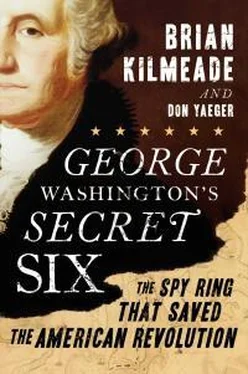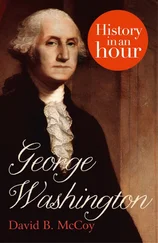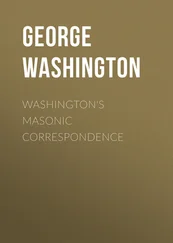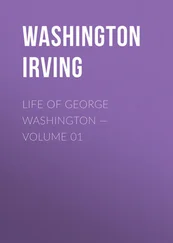THE FRENCH AND INDIAN WAR
Two decades earlier, in 1754, the British army (consisting of both soldiers from the motherland and local colonial militias) had launched a war in North America against the French army and native tribes who were attacking British citizens in regions granted in previous treaties to the British government. For the next nine years, the continent was embroiled in battles to control the various outposts and forts sprinkled across the wilderness regions of the Ohio River and Appalachian Mountains.
The previous year, Washington, just twenty-one years old, volunteered to engage with the French soldiers and learn whatever he could about their intentions and fortifications through leading conversations, as well as whatever was carelessly shared over wine bottles. As it did throughout his life, Washington’s temperate nature had served him well on that mission; he maintained his sobriety and clearheadedness so that he could report back to his superiors that the French had no intentions of quitting the country without a fight.
This conflict, in which Washington came of age, was part of the international unrest rooted in ancient rivalries and grudges resurrected by modern ambitions. But world attitudes had changed following the Treaty of Paris in 1763, and Washington’s role would change, too. France’s claims to its overseas colonies were devastated. Britain gained several of France’s North American colonies along the northern Atlantic and in the Caribbean, as well as the Florida territory held by Spain. People suddenly found themselves subject to a new crown and a new flag—sometimes even those of a former enemy. For the American colonists, who had long been subjects of the king of England (despite their Dutch, German, Irish, Scottish, Welsh, or West African ancestry) and necessarily viewed his enemies as their own, the expulsion of the French and Spanish from bordering regions lifted much of their fear of invasion and need for protection. Now they could focus more on their own interests. Recognizing that their rights and freedoms were being neither defended nor advanced by the king they had faithfully served, they began to rebel against the very government they had once relied upon for security.
ACTS OF AGGRESSION
In 1764, the British Parliament determined that the cost of the French and Indian War had been too high. Troops remained stationed in the colonies, adding to the financial strain, so additional revenues were needed to pay for their presence, as well as to tighten trade restrictions on the colonies. Over the next few years, Parliament voted to levy a series of taxes against the American colonists. The Sugar Act and the Currency Act restricted trade and the issuance of colonial money. Then Parliament expanded its reach in 1765 with the Stamp Act, which required that all printed matter—newspapers, legal contracts, pamphlets—must be produced with paper from London and embossed with a seal of verification.
This action was, in itself, not unreasonable—the colonists could be expected to help pay for their own defense. But the independent-minded colonists reacted angrily because of the act’s broader implications. All English citizens were supposed to be afforded the right of representation in Parliament, but there were no members of Parliament for the American colonies to agree to the taxation and insist that it be reasonable. The cry of “no taxation without representation” was sounded, and a Stamp Act Congress convened in New York City in October 1765 to protest the measure. The Stamp Act was eventually repealed, but others followed in its wake as King George continued to expand the power and grasp of the Crown, while simultaneously diminishing the rights of his colonial subjects.
In March 1770, the so-called Boston Massacre illustrated just how high tensions were running. British soldiers fired into a crowd of protesting Americans, killing five and wounding six. After the grassroots Sons of Liberty staged their famous Boston Tea Party in December 1773, dumping 342 chests of tea into Boston Harbor, London responded the following spring with harsh laws designed to make an example of Massachusetts as a warning to the other colonies not to challenge the Crown’s authority.
The warning was heard loud and clear, but it did not quell the fires of rebellion as Parliament had hoped. In fact, it had the opposite effect. In response to the Intolerable Acts, as the laws had been dubbed by the Americans, the First Continental Congress met in Philadelphia in September and October of 1774. Fifty-six men representing twelve of the thirteen colonies (Georgia opted not to attend) voted to unite in a series of boycotts against British goods; prominent Patriots, including Thomas Jefferson, Patrick Henry, and Henry Lee, were among the outspoken dissenters. They also resolved to send a petition of their grievances to King George in a last effort to prevent an escalation of hostilities.
The petition went unanswered. In April 1775, combat broke out between colonists and British troops at Lexington and Concord in Massachusetts; the following month, the Second Continental Congress convened to prepare for a full-scale war. Among the delegates from Virginia was the tall, soft-spoken surveyor, farmer, and former spy widely regarded for his valor in battle and exemplary leadership in the militia during the previous war: George Washington.
HOW TO WIN A WAR
Following his brief stint as a spy, Washington had led thousands of troops into battle, riding tall and remaining calm through even the heaviest bombardment. Later myths grew up around Washington—that he was spoken of in native prophesies as a man favored by the gods, that no arrows could touch him. If not actually invincible, he was at least regarded as unflappable by his peers, a sober-minded man of vision, wisdom, humility, and experience. For these reasons Washington was asked to serve as the commander in chief of the Continental Army. Now, two decades after his first spying mission, he would be engaged in a battle of his own to drive from that same land the British government he had once faithfully served. Who could have imagined such an outcome? But life was a strange pageant; he understood that well enough. And Washington knew that espionage would play a more important role in this new war.
In traditional wars that pitted monarch against monarch, there was a mutual respect for the authority of the crown even if there was a deep hatred for the person who wore it or the land claims he or she recognized. In those battles, it was all about might; the armies fought until someone was finally overpowered. Or, as had happened so often in new territories, one army fought with weapons, manpower, disease—whatever they had—until the other population was simply eradicated. Washington quickly realized that this revolution was different. King George respected no one and recognized no authority, certainly not whatever makeshift government the colonies could cobble together. His increasingly oppressive laws and his silence in the face of organized protests had made that clear. Yet the king would not seek to completely decimate the population of the colonies; dead subjects cannot pay taxes.
No, this war would be different from any other that had come before it. Of that Washington felt sure. It would not be a fight to the death, nor could it be simply a clash of armies. If the Americans wanted to emerge victorious from this conflict, they would not try to overpower their enemy; they would simply refuse to back down or go away. They didn’t need to be conquering heroes—they just needed to survive.
As New York slipped from his grasp, Washington saw that the Patriots would need to outmaneuver, not overpower, the enemy. And, by learning the enemy’s secrets, spies would play a crucial role in undermining British attacks through anticipating the redcoats’ next moves. It would be the only way to counter the superior numbers, training, supplies, and equipment of the British army and navy. This was especially true in the more populous cities, where the enemy had stationed large pockets of troops. There was little hope of defeating the British in head-to-head combat unless their battle plans and their weaknesses were already known.
Читать дальше












